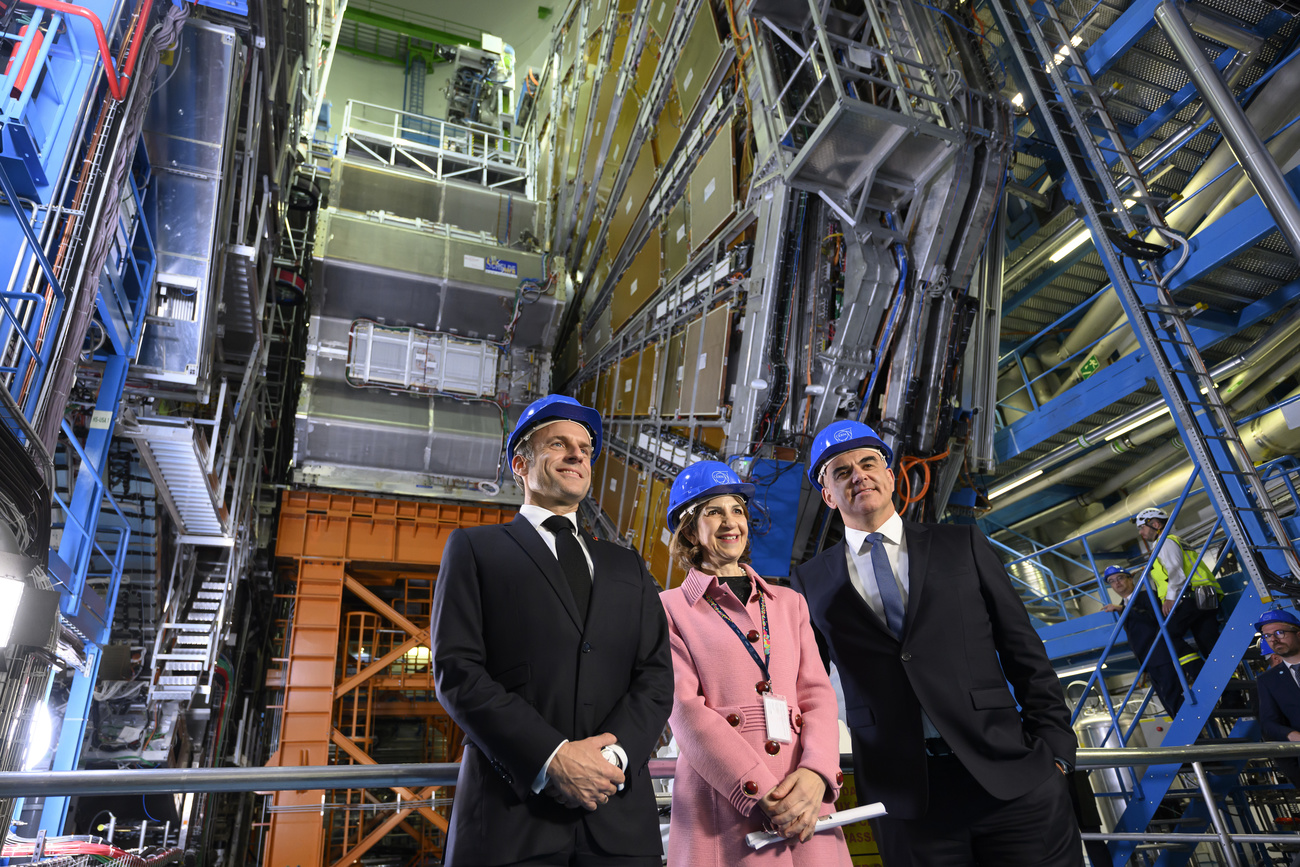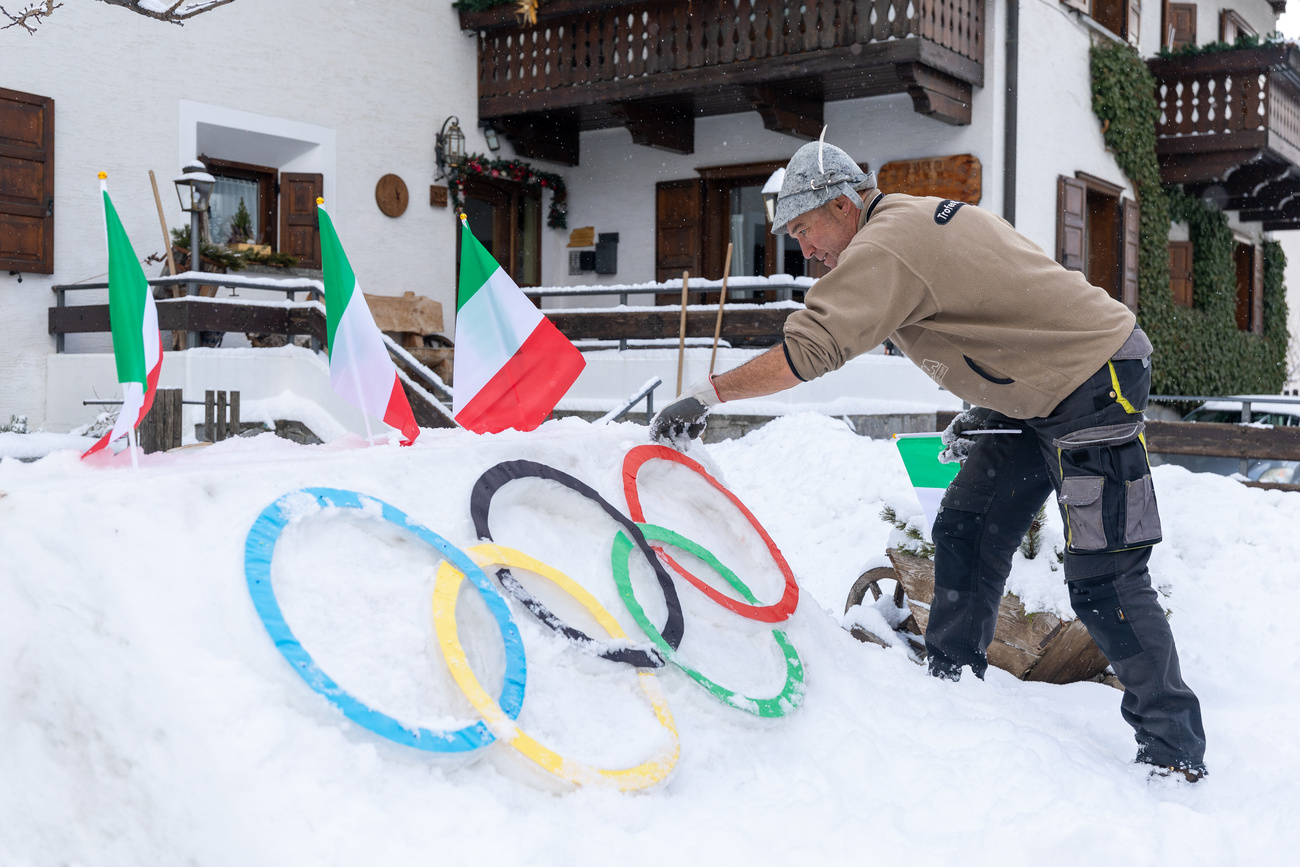
Macron visits CERN to reiterate French ambitions

French President Emmanuel Macron spoke on Thursday of France’s ambitions to remain in “first place” during a visit to the world’s most powerful particle accelerator on the Franco-Swiss border, where a successor, even more powerful, is being studied.
Macron concluded his two-day state visit to Switzerland on the border between the two countries, and more specifically in the bowels of CERN, the European Laboratory for Particle Physics and Nuclear Research, which houses the Large Hadron Collider. Among other things, the particle accelerator has confirmed the existence of the Higgs boson.
+ Macron in Switzerland: ‘you may not know it, but you are also Europeans’
“I have come to show my confidence in the teams and our determination and ambition to maintain our leading position in this field,” he explained, wearing a blue hard hat, as did his Swiss counterpart Alain Berset and CERN Director General Fabiola Gianotti.
CERN has launched its first field analyses to build a particle accelerator three times longer than the current facility, which will reach the end of its life in 2040.
If it goes ahead, the Future Circular Collider (FCC) will form a circular tunnel under the French-Swiss border, 91km long and around five metres in diameter, between 100 and 300 metres underground.
An extensive technical and financial feasibility study is currently under way, and Macron is expecting the conclusions of a mid-term report “in February next year”.
Fundamental questions
In the light of this report, “we will make the appropriate commitments, at least as far as the French government is concerned, and we hope to mobilise our partners and the private sector to a large extent”, emphasised the president.
The 23 member states of CERN (22 European countries and Israel) will decide around 2028/2029 on the construction of this facility.
The aim is to answer many fundamental physics questions that remain unanswered, given that 95% of the mass and energy of the universe are unknown to us.
This news story has been written and carefully fact-checked by an external editorial team. At SWI swissinfo.ch we select the most relevant news for an international audience and use automatic translation tools such as DeepL to translate it into English. Providing you with automatically translated news gives us the time to write more in-depth articles. You can find them here.
If you want to know more about how we work, have a look here, and if you have feedback on this news story please write to english@swissinfo.ch.

In compliance with the JTI standards
More: SWI swissinfo.ch certified by the Journalism Trust Initiative































You can find an overview of ongoing debates with our journalists here . Please join us!
If you want to start a conversation about a topic raised in this article or want to report factual errors, email us at english@swissinfo.ch.